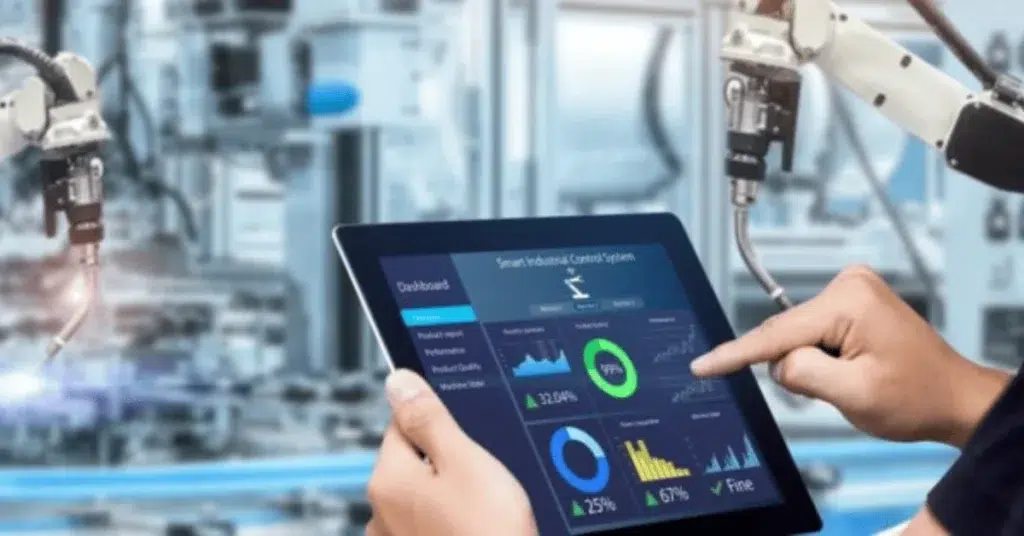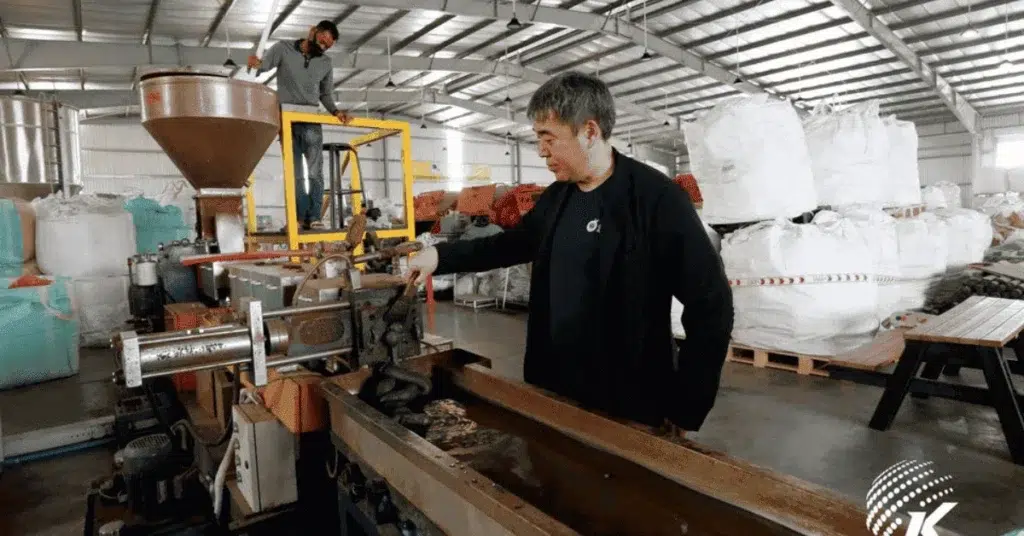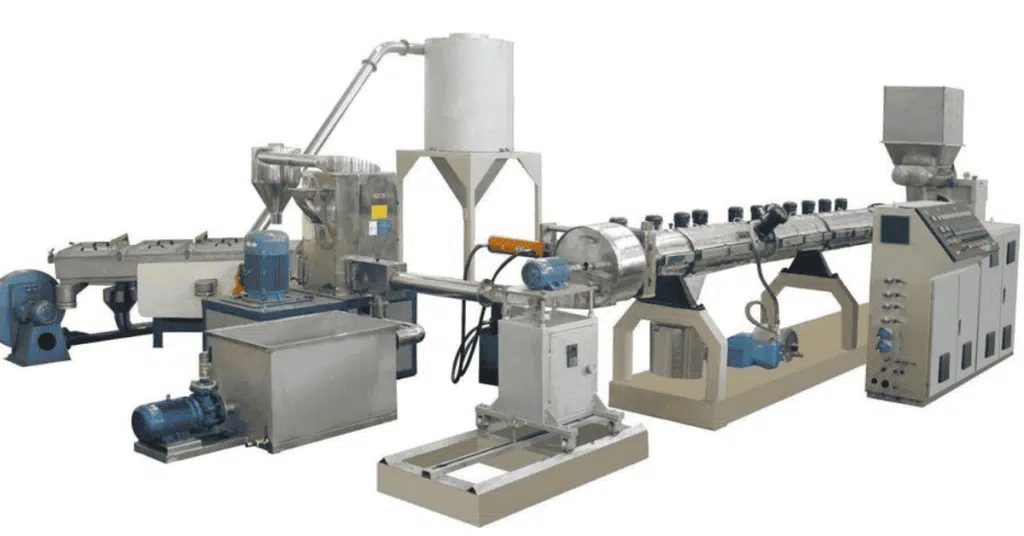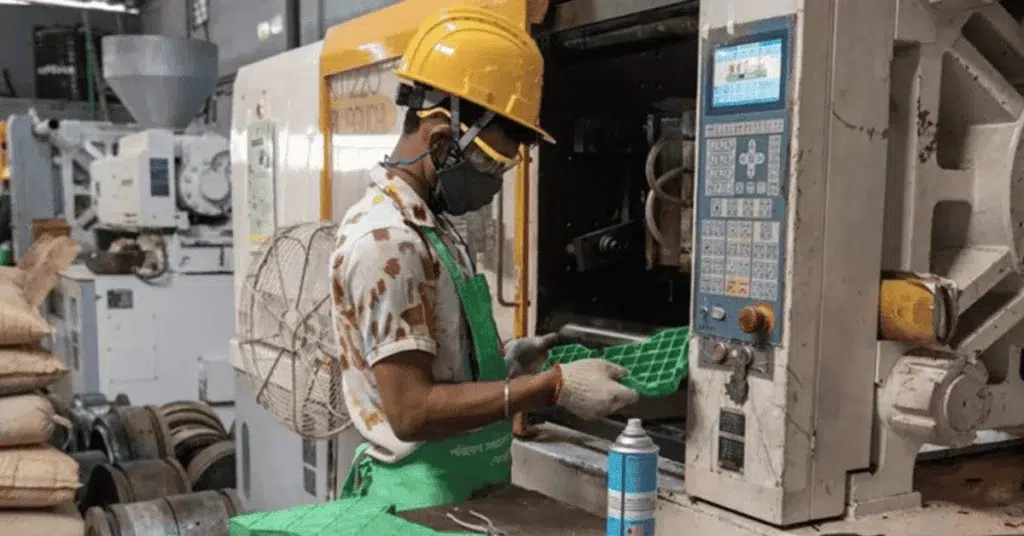Our Location
304 North Cardinal St.
Dorchester Center, MA 02124

India is charting an ambitious and transformative course to reshape the future of plastics through cutting-edge innovation, sustainable recycling systems, and a robust embrace of the circular economy. As the world’s fifth-largest producer and consumer of plastic, India faces a dual challenge: managing an ever-growing stream of plastic waste while fostering economic growth.
From 2025 to 2030, this challenge is evolving into an opportunity—driven by visionary policies, technological breakthroughs, and the rise of eco-conscious entrepreneurship. National mandates such as the Plastic Waste Management Rules and Extended Producer Responsibility (EPR) frameworks are catalyzing a systemic shift, urging industries to reimagine design, material use, and end-of-life product responsibility. In tandem, public-private partnerships and government-backed schemes are empowering start-ups and legacy businesses to pioneer innovations like biodegradable polymers, advanced chemical recycling, and AI-enabled waste segregation platforms.
Simultaneously, India’s transition is grounded in community-driven action and cultural ingenuity. Grassroots initiatives—from waste-picker cooperatives in urban slums to circular craft economies in rural regions—are stitching sustainability into the fabric of daily life. Collaborative platforms like the India Plastics Pact envision a future where all plastic packaging is recyclable or reusable by 2030, reinforcing a shared national vision of zero-waste living. With a growing ecosystem of green enterprises, policy enablers, and informed citizens, India is not only confronting its plastic problem head-on but also positioning itself as a global model for sustainable plastic stewardship in the 21st century.
India is at the forefront of developing sustainable alternatives to conventional plastics:
India is expanding its recycling capabilities beyond traditional methods:
Chemical Recycling: Techniques like pyrolysis are being scaled to convert multi-layer plastics into fuels and monomers, enhancing the recyclability of complex plastic waste.
Depolymerization: Processes are being developed to break down PET and polyester into reusable monomers, facilitating the creation of new plastic products from recycled materials.
Digital Platforms: Companies like Recykal have developed digital marketplaces connecting waste generators with recyclers, streamlining the recycling process and improving traceability.

Modernizing waste sorting processes is crucial for efficient recycling:
AI-Powered Sorting: Material Recovery Facilities (MRFs) in cities like Bengaluru and Pune are piloting AI-driven sortation lines, utilizing machine learning and hyperspectral imaging to accurately separate different types of plastics.
What It Is: Using sensors, image recognition, and AI to automatically sort plastic waste by type and color.
Businesses are adopting models that promote reuse and recycling:
Government policies are driving the transition towards sustainable plastics:
India’s progress toward better plastics is being driven by a coalition of industries, each playing a key role in material innovation, recycling, waste management, packaging, infrastructure, and technology. Here’s a breakdown of the top industries helping India transition to a more sustainable plastic ecosystem:
Supportive Action: These companies are aligning product development with India’s Extended Producer Responsibility (EPR) framework.

Supportive Action: These companies work with ULBs and brands to track plastic movement and ensure compliance.
Supportive Action: Helping industries meet bans on single-use plastics by offering compostable alternatives.
Supportive Action: Providing scalable reuse pathways for low-value plastics.
Supportive Action: Funding collection, investing in recycled content, redesigning packaging for recyclability.
Supportive Action: Making plastic recycling traceable, profitable, and auditable.
Supportive Action: Partnering with industries to commercialize new tech.
Supportive Action: Driving behavior change and ensuring inclusive circular models.
The circular plastics economy in India is emerging from collaboration across industries:

India aims to establish a circular economy for plastics, minimizing waste and maximizing resource efficiency.
| Focus Area | Target/Projection |
|---|---|
| Recycling Rate | Over 70% of plastic packaging to be recycled or reused |
| Recycled Content | Average of 30–35% recycled content in plastic packaging |
| Plastic Waste to Energy | Over 10% of non-recyclable plastics processed through waste-to-energy methods |
| Job Creation | Over 1 million new jobs in plastic waste management and green technologies |
| Market Growth | Plastic circularity market projected to reach $10.2 billion |
| Bioplastics Share | Over 15% of the plastic packaging market to be bioplastics |

| Challenge | Description |
|---|---|
| Infrastructure Gaps | Rural and tier-2/3 cities lack adequate recycling facilities and collection systems. |
| Consumer Behavior | Low awareness and participation in waste segregation hinder recycling efforts. |
| Regulatory Enforcement | Inconsistent implementation of EPR guidelines and monitoring mechanisms. |
| High Cost of Innovation | Bioplastics and advanced recycling technologies remain expensive without subsidies. |
| Metric/Category | India (2025–2030 Outlook) | Global (2025–2030 Outlook) |
|---|---|---|
| Plastic Waste Generation | ~3.5 million tonnes/year (CPCB 2022) | >300 million tonnes/year (OECD 2023) |
| Recycling Rate | 60% (informal sector + formal recycling) | 9% (global average); EU ~32%, US ~5% |
| Bioplastic Adoption | 1–2% market share (growing at ~15% CAGR) | 2–3% globally; Germany, Japan, and the US are leaders |
| Policy Framework | EPR, single-use plastic ban, India Plastics Pact | EU Green Deal, US EPA Circular Economy Goals, Plastic Pacts in >10 countries |
| Innovation in Recycling Tech | Emerging: chemical recycling, pyrolysis, AI-based sortation | Advanced: robotic sorters, enzymatic depolymerization, blockchain traceability |
| R&D Investment in Plastics | $500+ million (estimated public-private investment) | $5+ billion globally; highest in the US, EU, and China |
| Circular Economy Readiness | Moderate – strong policy push, rising awareness | High in EU, moderate in Asia-Pacific, low in Latin America and Africa |
| Digital Waste Platforms | Recykal, Blue Planet, Loopworm | TerraCycle (US), Plastic Bank (Canada), RePlast (Global) |
| Plastic Collection Infrastructure | Expanding in Tier 1 & 2 cities; rural gaps remain | Advanced in EU and Japan; moderate in US and Korea |
| Net-Zero and Climate Targets | Net-zero by 2070; plastic reform part of sustainability roadmap | Net-zero targets in 2050 (EU, US); plastics tied to carbon neutrality goals |
India’s plastic transformation story in 2025 is both a challenge and an opportunity. As one of the world’s fastest-growing economies and the fifth-largest generator of plastic waste, India stands at a critical juncture.
While India is a leader in recycling rates, especially via the informal sector, it lags behind in material innovation scale and investment in advanced technologies compared to developed nations. However, its ambitious goals by 2030—coupled with youth-driven entrepreneurship, smart public policy, and corporate accountability—put it on a strong path toward a closed-loop, circular plastics economy.
India’s journey toward better plastics is not just a national imperative—it’s a global inspiration. By combining ancient principles of reuse with cutting-edge technology, India has the potential to become a global role model in sustainable plastics by 2030.
1. India’s Chemical Recycling Status Report (2023)
🔗 https://www.cseindia.org
2. Reliance & IIT Madras on Chemical Plastic Recycling
🔗 https://www.iitm.ac.in
3. GRMTech & Pyrowave Chemical Recycling Collaboration
🔗 https://www.thehindubusinessline.com
🔗 https://energy.economictimes.indiatimes.com
4. CPCB Bioplastics Policy Guidelines (2023)
🔗 https://cpcb.nic.in
5. Terra Bioplastics, EnviGreen Startups
🔗 https://yourstory.com
🔗 https://startupindia.gov.in
6. Swayam (IIT Delhi Bioplastics)
🔗 https://home.iitd.ac.in
🔗 https://inc42.com
7. NITI Aayog: Sustainable Plastic Alternatives Report (2023)
🔗 https://www.niti.gov.in
8. TrashBot & AI-Powered Sorting Technologies
🔗 https://www.smartcities.gov.in
9. Blue Planet Environmental (AI in Recycling)
🔗 https://www.blue-planet.com
🔗 https://www.forbesindia.com
10. National Circular Economy Framework – MoEFCC (2024)
🔗 https://moef.gov.in
11. Recykal EPR and Marketplace Platform
🔗 https://recykal.com
12. India Plastics Pact Progress Report (2024)
🔗 https://www.wwfindia.org
🔗 https://www.cii.in
13. UNDP India Plastic Credit Blockchain Projects
🔗 https://www.in.undp.org
14. IISc Bangalore Plastic-Degrading Enzymes Research
🔗 https://iisc.ac.in
🔗 https://www.nature.com/nindia
15. IIT Guwahati Biodegradable Plastic Projects
🔗 https://www.iitg.ac.in
16. DBT-Funded Enzymatic Degradation Research
🔗 https://dbtindia.gov.in
17. Saahas Zero Waste & The Kabadiwala Micro-Recycling
🔗 https://saahaszerowaste.com
🔗 https://thekabadiwala.com
18. Hasiru Dala Informal Sector Integration
🔗 https://hasirudala.in
19. Plastic Roads by MoRTH
🔗 https://morth.nic.in
20. Plastic in Construction: Ricron Panels, Lucro
🔗 https://www.ricron.com
🔗 https://www.lucro.in
21. Tata Projects & L&T Green Building Materials
🔗 https://www.tataprojects.com
🔗 https://www.lntecc.com
22. FICCI Circularity Handbook (2025)
🔗 https://ficci.in
23. Lucro’s FMCG Plastic Upcycling Work
🔗 https://www.lucro.in
24. EcoLine & Ricron Durable Recycled Goods
🔗 https://www.ecoline.co.in
25. State of Recycling in India – FICCI (2025)
🔗 https://ficci.in
26. UNEP Global Plastic Outlook (2024)
🔗 https://www.unep.org
27. India’s Plastic Waste Dashboard – CPCB
🔗 https://cpcb.nic.in/plastic-waste
28. Tetra Pak India Recycling & WWF Partnership
🔗 https://www.tetrapak.com/in
29. HUL, Nestlé, PepsiCo Sustainability Reports
🔗 https://www.hul.co.in
🔗 https://www.nestle.in
🔗 https://www.pepsicoindia.co.in
30. Smart Cities Innovation on Waste Management
🔗 https://www.smartcities.gov.in
31. MeitY – IndiaAI WasteTech Startup Reports
🔗 https://indiaai.gov.in
🔗 https://meity.gov.in
32. Startup India Green Tech Listing (2024)
🔗 https://www.startupindia.gov.in
33. TERI Circular Plastics Research
🔗 https://www.teriin.org
34. UNEP–CSIR Joint Whitepaper on Plastics Circularity
🔗 https://www.unep.org/resources/report/global-plastics-outlook
35. CSIR India Plastic Innovation Programs
🔗 https://www.csir.res.in
India is witnessing significant innovation in both mechanical and chemical recycling. Companies like Reliance, GRMTech, and Recykal are leading projects using AI-powered sortation, chemical depolymerization, and blockchain traceability. Startups are also innovating with biodegradable plastic substitutes made from algae, starch, or agricultural waste.
India combines grassroots waste-picker networks, digital Extended Producer Responsibility (EPR) systems, and government mandates for recycled content in packaging. Compared to many Western countries that rely heavily on centralized facilities, India is encouraging micro-recycling units, plastic roads, and plastic-for-credit models to create a more inclusive and decentralized ecosystem.
Startups like Lucro, EnviGreen, Blue Planet, and platforms like The Kabadiwala are creating circular business models. Academic institutions like IIT Madras, IISc Bangalore, and IIT Delhi are conducting pioneering research in enzyme-based degradation, bioplastics, and advanced material recovery.
No, India is not aiming for a full ban. Instead, it is focusing on phasing out single-use plastics, increasing recycling rates, and incentivizing sustainable alternatives. The goal is to build a circular plastic economy, not eliminate plastics entirely, given their industrial importance.
As of 2025, India recycles approximately 60% of its plastic waste, which is higher than the global average (~20–25%). However, most of it is still informal or low-value recycling. Globally, countries like Germany and Japan excel in high-quality recycling infrastructure. India is catching up by digitizing waste streams, formalizing labor, and investing in circularity tech.

Welcome! I am a dedicated entrepreneur running an industrial affiliate product website, helping businesses and professionals find the best tools, equipment, and resources for their needs. With a passion for industrial products and a keen eye for quality, I curate and recommend top-performing items that enhance efficiency and reliability.
Through my platform, I aim to simplify the buying process by providing valuable insights, expert reviews, and trusted affiliate links to high-quality industrial products. Whether you’re looking for the latest machinery, tools, or safety gear, I strive to connect you with the best solutions available.
Thank you for visiting, and I look forward to helping you make informed purchasing decisions!